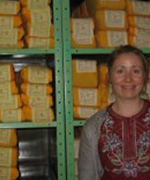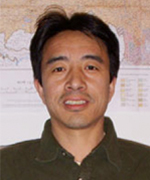Ornamentation Shared by Poetry and Song
With humor and levity, longtime collaborators Nicole Willock (Old Dominion) and Gedun Rabsal (Indiana) present chapter three of Daṇḍin’s Mirror of Poetics (Kāvyādarśa) through the lens of twentieth century Tibetan scholar Tseten Zhabdrung (the Snyan ngag spyi don). The focus is the concept of “world-play” (sgra rgyan) and the various examples given in this section of the text. Nicole outlines the third chapter and delves into the “richness of the phonemic value of poetry” with focus on beat, rhythm, and alliteration using examples from one section of the commentarial text focused on “phonemic reduplication” (zung ldan). Professor Rabsal looks at examples from Longchenpa and other authors and provides some analysis of the differences he sees between poetry (snan ngag) and song (mgur) in Tibetan literature.
Event: Lotsawa Translation Workshop – Breakout Session
Date: October 8, 2018 – 11:00 am
Speakers: Gendun Rabsel, Nicole Willock
Topics: Poetry, Tibetan Translation, Translation, Transmission

Nicole Willock
Old Dominion University
Nicole Willock (PhD Indiana University in Tibetan Studies and Religious Studies, 2011) is an assistant professor at Old Dominion University in Norfolk, Va. She is 2017 Research Fellow, The Robert H. N. Ho Family Foundation Program in Buddhist Studies, administered by the American Council of Learned Societies for her book project: Lineages of the Literary: Tibetan Buddhists Making Modern China. She is currently polishing up A Tibetan-English Primer for Poetics (Snyan ngag leg deb bod yin shan sbyar), which is co-authored by Gedun Rabsal. She also co-translated “Zhangtön Tenpa Gyatso’s Advice a Jeweled Rosary” with Gedun Rabsal, which will appear in A Gathering of Brilliant Moons: Practice Advice from the Rimé Masters of Tibet, edited by Holly Gayley and Joshua Schapiro (Boston: Wisdom Publications, 2017).

Gedun Rabsal
Indiana University, Bloomington
Gedun Rabsal teaches at Indiana University and his life goal is to contribute to preserving and promoting the advancement and flourishing of Tibetan literature and language. With these concepts in mind, he has chosen to devote his career to teaching, writing, researching, and translating so that Tibetan language can flourish in today’s world. Gedun Rabsal is a Senior Lecturer within the Department of Central Eurasian Studies. Born and raised in Amdo, he studied at Tibetan monasteries in Tibet and India. Gedun Rabsal worked as a research fellow at Central University for Tibetan Studies in Sarnath, Varanasi and as editor of the Tibetan language newspaper Tibet Times (Bod kyi dus bab). Gedun Rabsal’s research focus is the history of Tibetan literature and Tibetan language. Bod kyi rtsom rig gi byung ba brjod pa rab gsal me long (History of Tibetan Literature, 2001) and Rig pa’i khye’u: Dus rabs bcu gsum par tha snyad rig gnas bod la ji ltar slebs pa las ’phros pa’i dpyad rtsom dang gzhan (Birth of the Arts: Writings on the Arrival of the Conventional Fields of Knowledge in Tibet during the Thirteenth Century and Beyond, 2017) are two highlights of his publications. Besides teaching, Gedun Rabsal is undertaking a research project focusing on the Tibetan literature of the 14th century.
